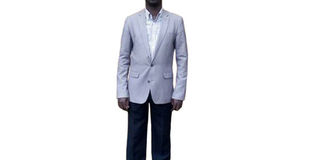What’s there to celebrate about independence?

Robert Mugabe
What you need to know:
- Independence. By the time of independence in 1962, the young men and women who had joined the security forces and civil service were all filled with hope for a better future in the new country. They worked hard and sacrificed many things for their country.
In 1961, just one year before Uganda gained her independence, my late father, Ladit Amitayo Okeny Lugwero joined the Uganda Police Force. He and his fellow compatriots dedicated their lives to the service of a country that was on the verge of gaining political independence from the British.
By the time of independence in 1962, the young men and women who had joined the security forces and civil service were all filled with hope for a better future in the new country. They worked hard and sacrificed many things for their country.
On the political front, many young people, including people like Jaberi Bidandi-Ssali, Kintu Musoke and Kirunda Kivejinja, among others, joined the struggle that rid Uganda of the yoke of colonisation, but most importantly, participated actively in shaping the politico-socio-economic future of Uganda after independence. Like their compatriots in the forces and civil service, they made all sorts of sacrifice, including abandonment of university studies, family and lucrative job offers to build a better country for themselves and future generations.
They did this with utmost patriotism, honesty and dedication. Building on the foundation of the protectorate government, they ensured that the civil service was competent enough to deliver the services that the citizens needed. As a generation, their leadership mission was to eradicate disease, illiteracy and poverty in Uganda. They thus laid down government programmes and policies that focused on doing this. These were implemented to the letter.
The era of paying lip service to citizen needs didn’t exist. Leaders appreciated the social contract they had with the people and did whatever they could to satisfy their needs. The vice of graft was simply unheard of. The men and women who ran Uganda’s security forces, civil service and politics knew that they had to work hard and honest to advance in their careers. They didn’t have to bribe somebody or belong to a certain ethnic group to be successful. Simply put, it paid to have brains, talents and experience, not money.
In other words, Uganda worked for all citizens. Health services were available and accessible to all citizens. It didn’t matter whether you were an ordinary citizen, a civil servant, a minister or the president. That is why when in 1969, at Lugogo Indoor Stadium, former president Apollo Milton Obote was shot in the mouth, he was treated at Mulago National Referral Hospital. He recuperated from Mulago, not a London or Washington hospital.
Education was available and accessible to all Ugandan children. Again, one did not have to be a child of a farmer, a civil servant, a permanent secretary or a minister to access quality education. After his forceful retirement from the Police Force in 1971, thanks to Amin’s brutality, my late father became a peasant farmer. His children, my elder siblings, went to the same school, Bwobomanam P7 School, with the children of Prof Okot Bwongamoi.
They had equal opportunity to become anything they wanted in life. Their social, economic or political background didn’t matter. What mattered was their God given abilities. Inextricably linked to the fight against disease and illiteracy was, of course, the fight against poverty. These distinguished men and women organised Ugandans into farmer cooperative societies to ensure optimal utilisation of land, in-puts and technology. This boosted production and ensured easy access to market for their produce.
In all, our country was on the move. We were at the same level of economic development with the East Asian countries. In fact, in some instances, we were better than them. They have since left us in the lower rung of economic development as they enjoy the middle income and for some, first world economic status. We still suffer from hunger. We are still afflicted by jiggers, bilharzia, measles, polio, TB, etc. We import everything from safety pins to toilet paper to shoes to clothes. All these in the 21 Century.
We have commoditised education so much so that quality is only available in private schools that are affordable only to the well-to-do. Our rulers hardly care about the ruled who pay huge taxes for their ostentatious lifestyles. They steal public resources with reckless abandon.
We have become what Mwalimu Julius Nyerere called the man-eat-man society. Yet at independence, our nation was so full of hope for a more prosperous future. So tell me, in the circumstances, what is there to celebrate about Uganda’s independence?
Mr Mugabe is a member of the Alliance for National Transformation party
[email protected]




